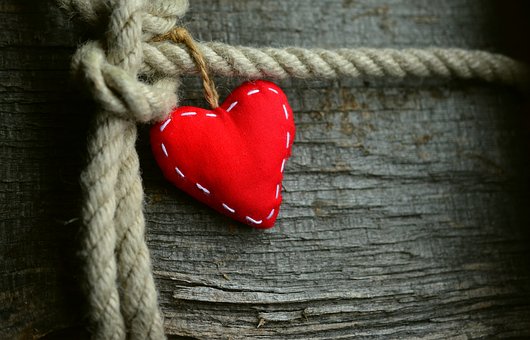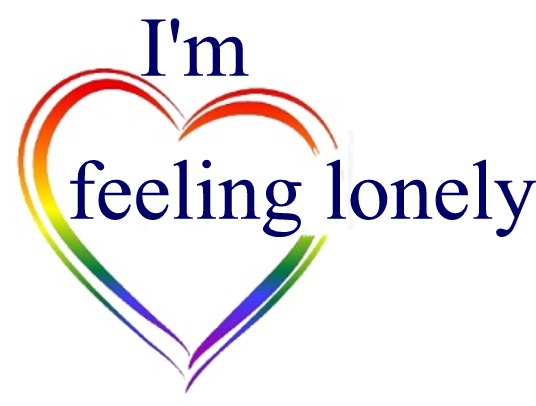Bereaved and lonely
All of us have an understanding of dying and death – it’s around us every day. From early on we are told about family members who died even before we were born. On the news we hear of wars and earthquakes with high numbers of fatalities. Sometimes we pause to think more deeply about the event and the people…. but in the main – for self-preservation – we have not engaged emotionally with every death, and rather have taken many of these events as a matter of fact.
So it’s not hard for us to understand how you, the person actually grieving, are unprepared for the depth of emotion you experience when a death impacts your personal life! Whether you have had a previous death to mourn, or this is your first deep experience with grief, you are facing different feelings and situations surrounding this loved one’s death… and it hurts!
You somehow get through the funeral and Māori tangihanga, and then what? Some days you handle your grief well (for yourself, and the outside world) and other days your own life seems to fall apart. And when the rest of the world seems to have moved forward, you realise the most intense of all your feelings is loneliness… and it seems like a downward spiral that won’t end.
So if you are one of the many people who feels lonely through bereavement, or you know of someone who feels loneliness in this way, then read on. In fact even if you suspect others might be lonely, and they stoically say they aren’t, it’s worth understanding loneliness and bereavement better.

Scratching the surface of being lonely
Just as you might find it hard to understand how people surrounded by their loved ones might feel lonely, it’s also hard for them to really grasp how very lonely you might be: what it’s like:-
Feeling guilty
...when you realised that you laughed while watching the sitcom, and just for that moment you had forgotten them.
Wishing
...you could be strong enough for yourself...let alone for your child.
Having to swallow
...what seem insincere condolences to you because it is rapidly followed by conversations of the fun event the night before.
Still being as emotionally attached
...to the person who died even though the death was eight years ago.
Knowing in your heart
... no one in the world gets you in the same way as your spouse did.
Your grief gives rise to many challenges with regard to feeling lonely...
… and in addition to these, you undoubtedly identify with many of the same loneliness problems that other people who aren’t suffering from bereavement have.
Prevalence of loneliness
If you are grieving and feeling lonely, it might help to know you aren’t the only one. While we can’t tell how many people are in your same emotional state, it is clear by how many deaths there are, that many people are grieving.
In 2019 there were 34,260 deaths registered in New Zealand. Each one of those deaths would have a ripple effect into the community.
Every death brings its own sense of tragedy for the community and bereaved.
How your loved one dies – and how old they are when they die – is not an indicator of the level of grief you will experience.
However, it’s easy to understand that your start to grief. and the loneliness you might experience as a result, would be considerably different depending on how you discovered the pending death or actual death of your loved one. 9
The shock of sudden death
The shock factor of being together with a chronically ill loved one in a familiar doctor’s room and being told of an early imminent death, would be quite different to the shock factor of being alone at home, and being told someone who left the house well and healthy has already died.
In 2016 the leading causes of death had suicide ranked fifth for Māori males, sixth for non-Māori males, sixth for Māori females, and ninth for non-Māori females; along with motor vehicle accidents being eighth for all males, eighth for Māori females, and ninth for non-Māori females.
Our heart goes out to the many families going around their everyday lives, who have received such horrific news without having been able to say a final goodbye to treasured members of their whānau. And we also have a high level of empathy for those people whose jobs are to deal with these deaths and the deceased’s families – a significant amount of sorrow throughout our country!

Exposing loneliness
Feeling socially isolated occurs when people, like you, are not connected into their communities in a meaningful way.
Society, other people and we ourselves unwittingly contribute to loneliness.
To name a few, loneliness in the grieving might be exacerbated when:
- the bereaved person cannot openly acknowledge their grief or the deceased cannot be publicly mourned, or is socially sanctioned.
- people from different cultures grieve in different ways, and yet you expect them to be like you.
- people are unskilled at what to say so even the well-meaning make inappropriate and hurtful comments to the bereaved…like “give it time; you’ll get over it”.
- one loss such as the death of a child, triggers another loss such as the deterioration in a previously healthy relationship between parents, and further triggers a third significant loss such as family separation.
- you don’t know how to deal with unexpected reminders such as acquaintances who recalled you were pregnant asking about your “bundle of joy” without knowing your baby died at childbirth.
- you aren’t integrating back into your former life when others in the family already have moved forward.

These are very real issues for you;
and some are not quick fixes! So despite these challenges it’s vital you actively find ways to ensure that you – and those around you – are emotionally healthy.
Exhibiting signs of being lonely
Solitude is very important for people to reflect and to come to grips with their situation. Being alone for short periods is also not necessarily unhealthy. What we are considering is the type of loneliness which is prolonged and might be damaging to an individual’s health and wellbeing.
Some people talk about their loneliness; others don’t; Some might not recognise that they are actually suffering from loneliness.
When people, like you, are already lonely, having people around you that you aren’t able to connect with on a deeper level, might even make your loneliness worse.
Research has shown that when socially isolated people aren’t getting enough regular human contact that can create problems with their family members and people who they do end up talking to.

This manifests behaviour such as:
- pushing your friends away because you feel as if you are on your own now and you have to take care of everything yourself.
- forgetting for how long you’ve been hibernating, and texts coming through read along the lines of “hey, are you still alive???” .
- declining and cancelling plans because you feel ill again thinking how everyone else has someone and is happy.
- keeping yourself excessively busy so an unhealthy amount of time is taken up, giving neither yourself nor friends space.
- becoming increasingly inactive and forgetting to take basic care of yourself.
- hoarding everything and anything that reminds you of your deceased loved one.
These are just the surface of the ways you might be showing signs of being lonely… and that you could recognise in others.
So where to from here?
Conquering loneliness
We appreciate…
you all have a unique story.
How long you have been lonely; what you believe causes your particular loneliness; and what you have already tried to alleviate the loneliness.

To get to the heart of your loneliness we would like to get to know you!
Your personality, your eccentricities, and your values are all part of what makes you feel your loneliness.
Your next step
People feel lonely for many reasons. To learn more about other hurt and lonely categories, select one of the coloured boxes below, or scroll down the “I’m feeling lonely” menu.

With our help you can conquer your loneliness by taking better care of your inner self.
And we can conquer loneliness in New Zealand by better understanding and accepting each other.
So when you are ready…click here.
We look forward to hearing your view of the world!
